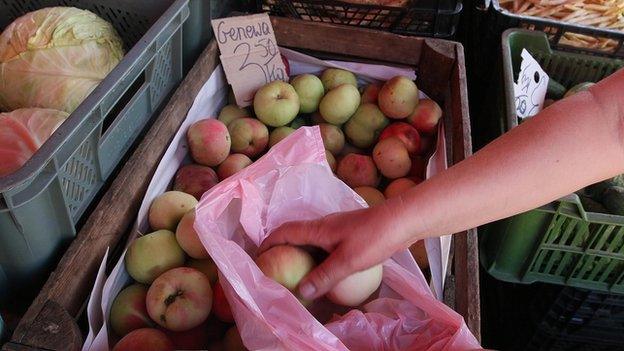EU to pay struggling peach growers hit by Russian ban
- Published
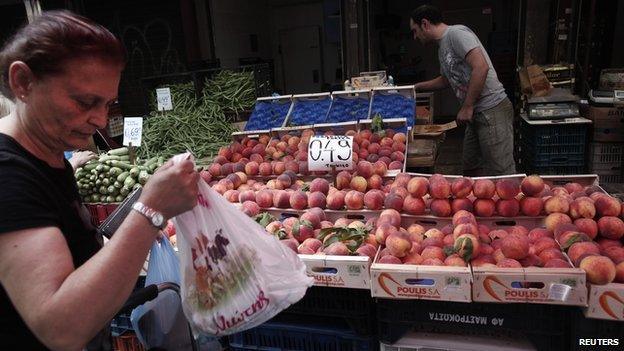
Crisis-hit Greece is one of the biggest exporters of fresh peaches to Russia
The EU is moving to prop up peach and nectarine growers who are in financial trouble because of bad weather and Russian sanctions introduced last week.
The European Commission plans to pay growers for 10% of their crop, which will be withdrawn from sale and distributed free to schools, hospitals and prisons, a spokesman told the BBC.
Reducing the supply on sale should push prices up. Normally the volume of fruit eligible for withdrawal is 5%.
Russia has shut out many EU food items.
EU fruit exports to Russia last year were worth 1.07bn euros (£855m; $1.4bn) - the biggest agricultural export sector, ahead of dairy produce and meat.
Russia gave details of the embargo on 7 August, linking it directly to EU sanctions imposed earlier on Russia. The food import ban also applies to the US, Canada, Australia and Norway.
EU and US sanctions are targeting top Russian officials and key economic sectors, such as energy and finance, as Western leaders accuse the Kremlin of destabilising eastern Ukraine by supporting the pro-Russian separatists there.
"Following the recent decline in prices on the peach and nectarine markets, urgent action is needed to prop up the market," EU Agriculture Commissioner Dacian Ciolos said., external
"We are monitoring markets closely and I will not hesitate to do likewise to assist other sectors dependent on exports to Russia, should it be necessary."
Special EU fund
The emergency aid for fruit growers will come from a new 420m-euro fund set up under the Common Agricultural Policy (CAP). It is expected to cost the EU about 30m euros.
"We shave off 1% from the direct payments for all farmers and hold it in this reserve, for market crises," the Commission's agriculture spokesman Roger Waite said.
France, Greece, Italy and Spain are the main EU peach and nectarine producers.
Special support for them had already been under discussion before the Russian sanctions, Mr Waite said, because fine weather had produced a glut early in the season, then a cold snap in June caused a sudden drop in demand.
Agriculture experts from the 28 EU member states will meet on Thursday to assess the impact of the Russian one-year import embargo and consider alternative markets for affected EU food exports.
Poland has asked the EU to compensate its apple growers, hit hard by the Russian embargo, Reuters news agency reports., external Russia imposed a ban on fruit and vegetables from Poland on 1 August, before announcing the EU-wide ban.
- Published10 August 2014
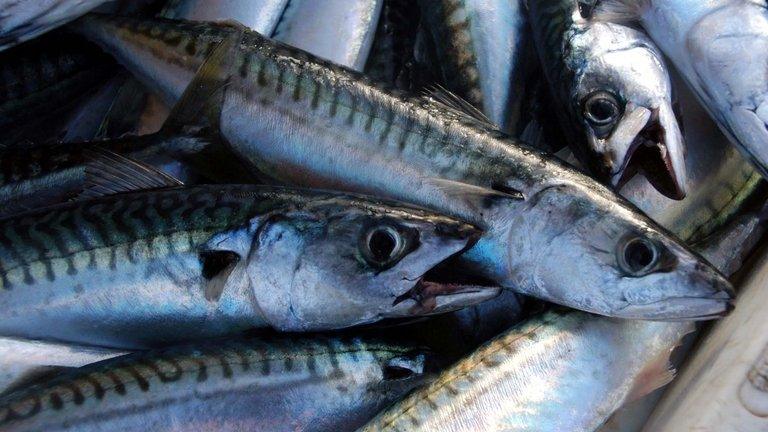
- Published7 August 2014
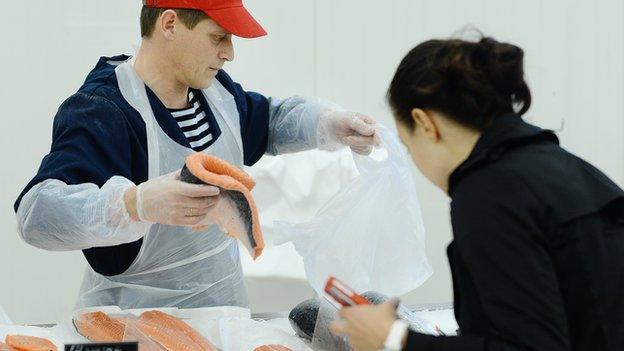
- Published1 August 2014
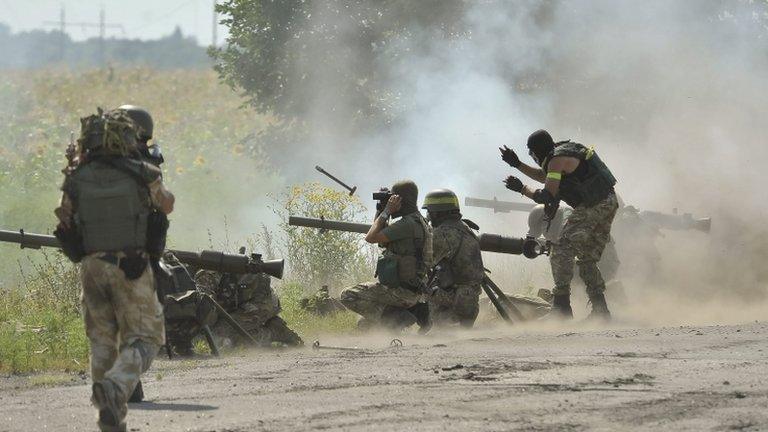
- Published1 August 2014
